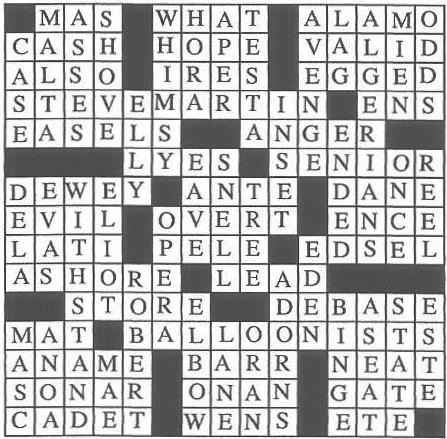
5 minute read
The stones cry out
By Stephen Broache
The Baptists had traditionally shunned the use of the demon rum. The bootleggers did not want the legalized sale of the nectar of the gods to cut into their illegal surreptitious sale of alcohol smuggled into the county for resale at an inflated profit.
Advertisement
The Presbyterians were more favorable to legal sale of suds and spirits as a means of cutting down on the high rate of alcohol-related accidents and deaths between Adair County and the wet counties to the north and east, as well as the exorbitant prices the bootleggers demanded.
While the illegal and legal purveyors of booze and suds shared the common concern for sales and the profits they bring, the various religious groups shared a common concern for alcohol abuse and its adverse effects on the county’s population.
The differences differences between their sides on the Option at election time lay in what they felt to be the better way to address the problem.
Election days were always peaceful. The casting and counting of ballots were honored and accepted by both sides of the Option and the other issues and office races. The campaigns were spirited, but folks remained friends after the results were announced.
The local clergy understood that both sides shared the common concerns, even as they held different views on their solutions. They prayed for God’s guidance in their deliberations.
Perhaps we can catch a glimpse of how Adair County’s people of faith could apply their beliefs to participation in and support of good government. Many of them read their Bibles.
Jesus taught that one should live the lessons of the Sermon on the Mount, as guides to spiritual survival in the Roman Empire. He also taught that faithful followers of God should live as good citizens, obeying the laws and paying their taxes.
Paul told the early Christians to they created.
Over the years I began to realize that the universe itself is much like a kaleidoscope. We can look at the sky to view an ever-changing panorama. God created a vast array of plants, animals, rocks and people, where there are seldom two exactly alike.
How boring it would be if everything were the same! God has gifted us with a vast universe of diverse creations for our pleasure and God’s glory.
Today’s prayer: Creator God, help
Neither Jesus nor Paul taught violence and the insistence that other people must believe and live as they did. They simply invited people to consider the faith in Christ as they lived and told of the Good News of God’s grace and forgiveness.
We live in a time of heated arguments, divisive behavior and the insistence that everyone else must abide by our rules. People shout at each other, not listening to what is being said. Sometimes we become tired of all the information that is thrust at us through instantaneously reporting of events and the often unreliable social media.
We are basically good people who mean well, but let’s consider the values of respectful persuasion and listening to understand where else is coming from in thought. Perhaps all of us should read Jesus’ Sermon on the Mount (Matthew 5:112) and Paul’s speech in the Athens marketplace (Acts 17:16-34).
Let’s respect the gifts of our nation’s greatness, created through God’s guidance by people of differing views and beliefs. They argued, and some even disliked each other.
From discord and the blending of ideas, a nation arose because these people saw in each others’ eyes a desire for a good a noble nation. And they worked together to give us just that, a nation formed on a stable foundation of a Constitution, flexible enough to be adjusted as needed without damaging its firm foundation.
Be it an orderly vote on the “Option” or an amendment to our nation’s Constitution, let’s ask God for guidance and understanding of those with whom we may disagree. Let’s not allow differences of opinion tear our nation apart.
God, thank you for what has been good and noble in our nation’s past and for the good adjustments we have made in it. May we seek to do what is right, remembering that we are always only a few steps away from losing what you have given us. God, guide us to discern what is good and to sort out what may be only our own selfish desires. Amen.
(Editor’s note: This is part five in a series in honor of the 160th anniversary of the Battle of Gettysburg, July 1-4, 1863.)
“And some of the Pharisees in the multitude said to him, ‘Teacher, rebuke your disciples.’ He answered, ‘I tell you, if these were silent, the very stones would cry out.’ ”
— Luke 19:39-40
Like silent sentinels, the “witness trees” of Gettysburg remind us of the momentous struggle that occurred there.
In front of the old Winebrenner House, on Baltimore Street, stand two of them. They were there in 1863, although at that time, they were only about a foot in diameter.
These stately cottonwoods also were a witness to President Lincoln passing by only a few months later on his way to dedicate a cemetery to honored dead,mas the bronze plaques attest.
But along with the trees, perhaps more poignant because of their changing nature and life within them, of course, are what I call the “witness stones.”
The most well-known, as we know, are the black granite boulders of Devil’s Den. They are definite witnesses of heavy fighting, and the site of the infamous staged photo of a dead confederate sniper. Sorry, but wrong rifle, wrong guy and an opportunistic war photo correspondent.
When I take a look around other parts of the battlefield, the number of stones jumps out at you. Perhaps they were also hiding places, or vantage points (Little Round Top) or goals, as in “Lets meet our units at the rock out-cropping north of here.”

They could also be stumbling blocks. Take the old hiking path behind Big Round Top sometime, but be careful, you could hurt an ankle.
To me, all of these stones “cry out” to the perspective of the in-

Rev. Stephen Broache
dividual on the ground as events transpired. The Gettysburg area is a perfect area for what we call “war games,” but the saddest part of all was that it was no game.
Each year in our church year, the Palm/Passion themes of jubilation to condemnation reflect the disgruntled/chagrined Pharisees complaint of the clamor surrounding his Zechariah inspired entrance: “Lo, your king comes to you; triumphant and victorious is he, humble and riding on a donkey …”
And that king tells us that if the crowd had been quieted, even the stones would have cried out. It was a cry I felt deeply on my final day in Israel in 2013.
Our tour guide told us that we were standing on Roman era stones. We noted the style and placement. And then he said, “This area was Pilate’s seat of judgement, and the stones where you stand are the same ones Jesus stood on when he was brought before him.”
Time froze for me. These were the Palm Sunday stones. His feet were not nearby or probably here. They were here. This site was where he argued calmly and then in silence as he was evaluated for crucifixion. The stones cried and knew his love for me. Their witness to me was heard and felt. Can you hear them?
Prayer: Lord, help me to walk today where Jesus walked, and feel him close to me. Amen us to appreciate diversity in nature and in the people we meet. We pray as your Son taught us, “Our Father which art in heaven, Hallowed be thy name. Thy kingdom come. Thy will be done in earth, as it is in heaven. Give us this day our daily bread. And forgive us our debts, as we forgive our debtors. And lead us not into temptation, but deliver us from evil: For thine is the kingdom, and the power, and the glory, for ever. Amen” (Matt. 6:9-13, KJV). Amen.
— Michael Joseph Hotchkiss, Virginia









